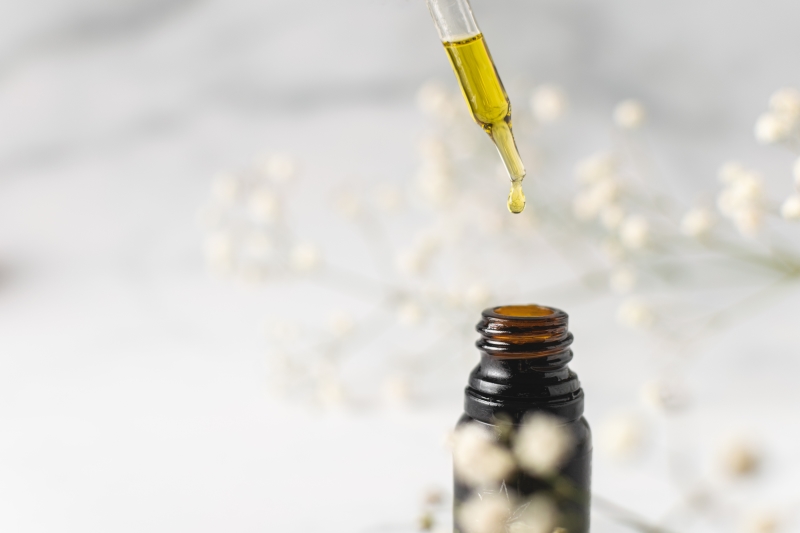What does mānuka oil smell like? Mānuka oil offers a distinctive scent much more favourable than tea tree oil. Rather than just a pleasant aroma, its scent indicates the diverse uses of mānuka oil, including facilitating relaxation, soothing effects, and numerous benefits for the skin.
What Is Mānuka Oil?
Mānuka oil, derived from the mānuka tree, has gained prominence in the world of essential oils due to its potent antibacterial properties. This essential oil is closely related to the popular tea tree oil, and studies indicate that it offers even greater medicinal benefits while avoiding the strong scent and potential allergic reactions associated with tea tree oil.
How Is Mānuka Oil Extracted?
To fully appreciate the aromatic prowess of mānuka oil, it is essential to understand its delicate extraction process. Mānuka essential oil undergoes a meticulous harvesting method known as steam distillation. This process involves passing steam over the leaves and small twigs of the mānuka plant for an extended duration, typically around five hours.
During this steaming process, magic happens. The steam extracts the molecules containing the precious oil, transforming them into vapour. As the vapour cools down, these oil molecules become liquid. This natural transformation causes the mānuka oil to rise to the top, where it is then collected.
The journey of mānuka oil doesn’t end with its collection. After the upper layer of oil is gathered, it goes through a series of crucial steps to ensure its quality. This includes infiltration, drying, and rigorous analysis. The analysis is particularly important to assess the oil’s chemical composition and fragrance profile.
What are Triketones?
Triketones play a crucial role in the antibacterial properties of mānuka oil. Significantly, mānuka oil owes much of its antibacterial effectiveness to its high triketone concentrations. The higher the triketone levels, the more valuable mānuka oil becomes.
In New Zealand, where 36 mānuka species have been identified (nearly 80 globally), those from the East Cape region have the highest triketone levels. An exception to this trend is found in the Marlborough Sound area of the South Island, where triketone concentrations exceed 20%.
The following beta-triketones are regarded as highly effective antibacterial compounds:
- Leptospermone: Contributes to the effectiveness of mānuka oil in combating bacteria.
- Isoleptospermone: Enhances the oil’s ability to target and inhibit the growth of bacteria.
- Flavesone: Plays a significant role in mānuka oil’s antibacterial action, making it a valuable compound for battling bacterial infections.
It is interesting to note that mānuka oil surpasses tea tree oil, lavender, eucalyptus, and rosemary oil in terms of its powerful antibacterial properties.
What Does Mānuka Oil Smell Like?
Mānuka oil offers a distinctive fragrance characterised by its earthy, refreshing, and pleasing notes. Individuals with sensitive dispositions may find this aroma a gentle and soothing sensory experience. Complementing its earthiness, mānuka oil features subtle sweet undertones and hints of wood, spice, and honey.
Compared to tea tree oil, mānuka oil is often favoured for its agreeable scent. This versatility allows it to blend harmoniously with other essential oils, making it a valuable component in crafting custom blends for both therapeutic and aromatic purposes.
Mānuka Oil Benefits
Mānuka oil has gained popularity in recent years due to its potential healing benefits. Here are some of the healing benefits associated with mānuka oil:
- Antibacterial and Antifungal: Compounds like β-triketones make it effective against a wide range of harmful microorganisms, including antibiotic-resistant strains. It can be used topically to treat minor cuts, wounds, and skin infections.
- Anti-Inflammatory: Helps reduce inflammation and soothe skin conditions such as acne, eczema, and dermatitis. It may also provide relief from inflammatory conditions when used in aromatherapy or massage.
- Wound Healing: Aids in healing minor wounds and cuts. It may help prevent infection and promote faster recovery.
- Skin Care: Helps cleanse and rejuvenate the skin. It is believed to assist in reducing blemishes and improving the overall complexion.
- Respiratory Health: Can be inhaled as part of aromatherapy to help relieve respiratory conditions such as congestion, colds, and sinusitis. It may offer relief from coughs and symptoms of respiratory infections.
- Relaxation and Stress Reduction: Its pleasant aroma can have a calming effect on the mind. Inhaling its scent through aromatherapy can help reduce stress and promote relaxation.
- Pain Relief: When diluted with a carrier oil, it can be used for massage to alleviate muscle pain and joint discomfort. It may also help with headaches and migraines when used as part of aromatherapy.
Blending Mānuka Oil with Other Essential Oils
Manuka oil is a pure essential oil that requires dilution. Creating custom blends by combining mānuka oil with other essential oils allows aromatherapy or skincare routine to meet personal preferences while taking advantage of the distinct characteristics of each oil.
Here is a more detailed exploration of these essential oils:
| Essential Oil | Uses and Benefits |
| Basil | Provides a soothing and uplifting aroma |
| Black Pepper | Reduces anxiety and stress |
| Chamomile | Promotes relaxation and emotional well-being |
| Eucalyptus | Ideal for respiratory support |
| Grapefruit | Enhances mood and energy |
| Lavender | Promotes relaxation and balance |
| Patchouli | Creates a unique and exotic fragrance |
| Rosemary | Provides a stimulating and uplifting scent |
| Sandalwood | Promotes relaxation and tranquillity |
| Thyme | Reduces inflammation and infection |
When blending mānuka oil with other essential oils, consider the intended purpose and desired fragrance. These combinations can be used for massage oils, diffuser blends, or skincare products. Start with a small quantity and adjust the ratios to achieve the preferred aroma and therapeutic effects.


